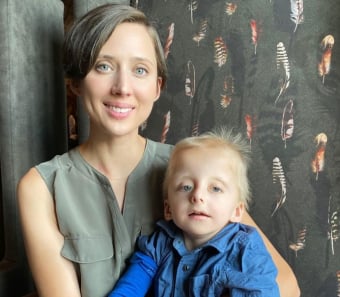This panel of 35 genes is intended for patients with a diagnosis or clinical suspicion of Connective Tissue Disorders and is performed by next generation sequencing.
8 weeks
81410
$3,000
This panel consists of 35 genes associated with various forms of connective tissue disorders. Many patients with a suspected connective tissue disorder will present with similar features due to the clinical variability and the variable expressivity among this group of disorders. Making the specific diagnosis can be important in determining the appropriate medical management for features such as aortic dilatation or abnormal wound healing.
For patients with a specific suspected disorder, individual gene sequencing should be considered first. Molecular testing is useful to confirm the diagnosis and to identify the disease causing mutations within a family to allow for carrier testing and prenatal diagnosis.
Next Generation Sequencing
The current design of this panel covers all genes and the flanking intronic sequences. This method allows for analysis of greater than 98% of the targeted sequence for the detection of nucleotide substitutions and small deletions and duplications. Large deletions and duplications will not be detected by this panel. Mutations and variants identified on the panel are confirmed with Sanger sequencing. All novel and apparently pathogenic changes are reported when found within the coding region as well as within 10 basepairs of each intron/exon boundary for each gene. Promoter and 3' untranslated sequences are not included in the current analysis. It should be noted that the current protocol is not specifically designed to detect copy number alterations and single exon deletions may require additional follow-up to determine whether or not they represent technical artifacts. We recommend further array-based testing to more accurately address the concerns of dosage alterations. The Cytogenetic Laboratory at GGC offers a high resolution whole genome SNP microarray. The GGC Diagnostic Laboratory Directors are available for further consultation regarding the limitations of the NGS and array testing procedures.
The preferred sample type is 3-5 ml of peripheral blood collected in an EDTA (purple top) tube. Extracted DNA and saliva are also accepted for this test. Saliva samples must be submitted in an approved saliva kit. Contact the lab to receive a saliva kit or to have one sent to your patient.
The specimen should be kept at room temperature and delivered via overnight shipping. If shipment is delayed by one or two days, the specimen should be refrigerated and shipped at room temperature. Do not freeze the specimen. Samples collected on Friday can be safely designated for Monday delivery.
If the pathogenic mutation(s) are identified in an affected individual using this panel, prenatal diagnosis is available for future pregnancies. Sanger sequencing will be used for prenatal diagnosis when there is a known familial mutation. Additional fees for cell culture and maternal cell contamination may apply. Maternal cell contamination studies are required for all prenatal molecular tests. Contact the laboratory prior to sending a prenatal specimen.
Call our laboratory at 1-800-473-9411 or contact one of our Laboratory Genetic Counselors for assistance.
Robin Fletcher, MS, CGC
Falecia Thomas, MS, CGC
Alex Finley, MS, CGC
